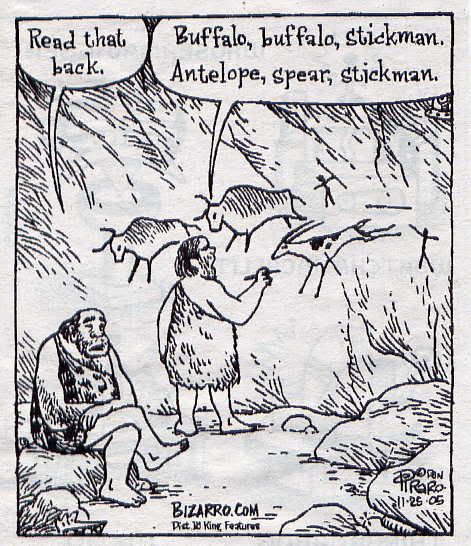One thing that’s caught on with civilization is the whole “literacy” thing. Which, strictly speaking, may not be required for tribal life, but I think is quite fun. I’ve been thinking about the things that will differentiate pre-civ primitives from post-civ primitives, and I think widespread literacy may be one of them. My reasoning is that it’s almost entirely a mental skill, which can be passed on without complicated education, and the marks can be made on almost anything with almost anything and still convey meaning. The only way that kind of skill will fall out of favor is if it proves useless, which I can hardly see happening.
But I’d like other’s opinions on the matter. Do you think literacy is here to stay, or will future primitives drop it? Why?


